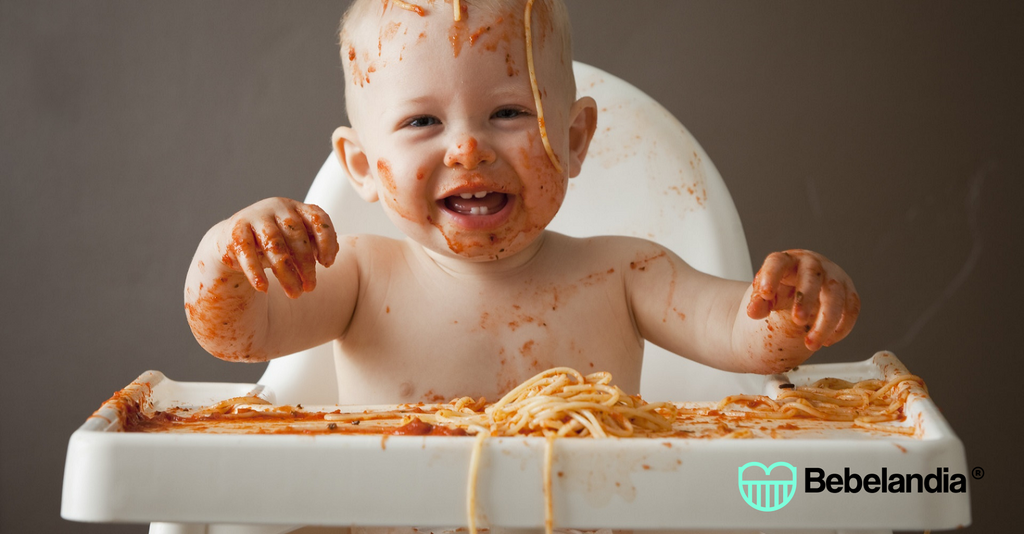And the time has come to stop breastfeeding and start feeding him solids. Your pediatrician will give you a guide on how and when to introduce each food. From the crib to the high chair, a great new adventure begins for your baby , but also for you.
When he is still very small, in his first meals you will notice his tastes and preferences. You have to let him try little by little everything that is indicated in his diet and do not worry if he does not like something, do not force him to eat, talk to him and smile while you give him his food and dedicate that time just for him, this first experience is important since he will associate his mealtime with something pleasant.
When the time comes for him to learn to eat on his own, he will like to discover, feel, and play with food. It is important to let him experiment with his senses. Let him get dirty and then you will clean it up. A good idea is to have two plates, one for your baby and one for you, where you can feed him until he gradually learns to eat without having to make a mess in the high chair, or on the floor or on your clothes.
When he's finally been able to eat with his spoon, you think everything is under control. He probably also has a schedule that allows him to eat with the family, and that's wonderful. But since he's probably already starting to walk, he won't want to sit down to eat because he'd rather continue discovering that world where he's now more independent.
At this stage you should make an effort to have attractive foods, cutlery with drawings or shapes that catch his attention, it is important that toys are left in another area out of his sight so that they do not distract him, it is also advisable that he sees everyone eating and talking and that he feels involved, maybe he can stay a little longer
Finally, all children throw tantrums and fight, they prefer games to eating and the situation can become a moment of tension, so patience is more than necessary, it is also important not to promise a gift or a dessert if they eat, do not allow them to realize that you are worried, you have to let them set their limits of satisfaction and know that as long as they do not present discouragement, illness, inactivity or drowsiness, everything will be fine.
You should never force them to eat, as finishing everything they've been served would become a serious problem. It's advisable to serve small portions on their plate so you can serve yourself a little more if necessary.
The best way to know your baby isn't having trouble in this food fight is to see that he's staying active, has lots of energy, is growing, and looks healthy. Don't worry, this will pass, and you'll likely have a teenager years later with a voracious appetite that will devour your entire pantry.

